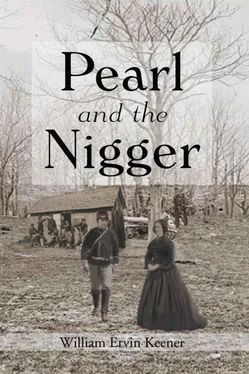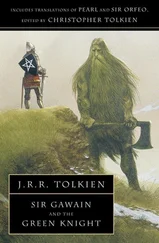“Molly, a high-spirited maiden of Scotch Irish stock, and as your great-grandpa stated many times, ‘Their ancestry went back to Robert the Bruce, the king of Scots himself. She was beautiful, haughty, and proud but at the same time kind and affectionate, but Southern through and through. She loved the beautiful highland country of old Virginia, in which she lived. At the age of eighteen years, Molly became bitter toward the North and obsessed with the cause of the South. Through her enthusiastic diligence to deal the ‘invaders and murderers’ a decisive blow, she tossed caution, thought, judgment, and freedom for herself to the wind. Her foremost thought was a swift end to this conflict.
“Every week Molly rode up to the Sewell Mountain attired in a black flannel riding habit, of her own make, astride a man’s saddle. She rode like the wind on her high-spirited black stallion with two white front stocking feet that she raised from a colt and named him Black Demon. Some weeks she made more than one trip, stopping only at the Old Stone House for a little rest, food, and water. The Old Stone House, a stage stop between Lewisburg and the Tyree Tavern on the James River and Kanawha Turnpike, stands today basically as it appeared in 1860s. There has been a room built from wood added onto one side. Asphalt shingles replaced the hand-split white oak shakes on the roof. The interior has been changed many times, but the stone walls and roof framing of the basic house are unchanged. From there she rode directly to General Lee’s tent.”
“What was she doing?” I interrupted.
“She was reporting on the movements of the Union troops down Gauley and in the Kanawha Valley. Every day she rode through an area where the Federal troops were to observe their operations. She rode from the Pines, to the Gauley, to Carnifex Ferry and Keasler’s Crosslanes, and around the Gray Dragoons encampment, then to big Sewell, reporting all to General Lee. As she rode, her black hair fluttered in the breeze and her blue eyes blazed and shone like azure sapphires. An expert rider, she was the envy of every Yank and Reb. There weren’t many, if any, who could sit on a horse as she could. She soon became the idol of every trooper along the way, which made it easy to engage in conversation with either Yank or Reb. In the early summer of 1861 until early spring of 1862, the old turnpike in the Appalachian Mountains was alive with troops, both Union and Confederate. As recorded in history, they were constantly coming and going, shifting and changing positions. Threats of attacks and counterattacks prevailed. There were frequent skirmishes, but none serious, and the great decisive battle to retake western Virginia from the Union, which both sides talked about and predicted, never came.
The Confederates had been driven out of western Virginia, and they determined to conquer it again. With that objective, General Henry A. Wise moved out of Lexington to Lewisburg, encountering no resistance along the way. Here he learned from those loyal to the Confederacy that a heavy concentration of Union soldiers was encamped at Carnifex Ferry on Gauley River commanded by Colonel Tyler. Farther down the Gauley at the ford where New and Gauley Rivers join at Gauley Bridge was an even larger concentration of troops commanded by General McClellan. The immediate danger was from Union general Cox, who was entrenched on Meadow Bluff, less than twenty miles west. Chancing strong resistance if advancing farther, General Wise decided to halt his troops and camp on the Greenbrier River at Lewisburg.
Richmond, hearing of the danger faced by General Wise and his men, ordered generals John B. Floyd and Robert E. Lee to join General Wise at Lewisburg. General Floyd left immediately with his men. General Lee was given the remnants of General Garnett’s forces, who were defeated and slain by forces led by then colonels Rosecrans and Tyler at Carrick’s Ford, on the Cheat River, a few months earlier. General Lee departed Monterey three days later.
General Lee and his army, upon reaching General Wise, took command and deployed his troops to Big Sewell Mountain and assumed the duty of watching General Cox’s movements between the Meadow Bluff and the Ohio Valley. This was an effort to stop any onrush of Union troops from the Gauley and the Ohio Country and to do what he could in retaking that part of his native state, which was now threatening succession from Virginia to form a new state and join the enemy.
Under a large white oak on top of Big Sewell and today known as Lee’s Tree, the quiet, handsome, and dignified general pitched his tent. Daily, in a spick-and-span gray uniform, he rode on his soon-to-become-famous horse, Traveler, to inspect his troops and view the enemy camp. Far across grassy meadows on a nearby mountain, a northern army commanded by General Cox had dug in. Day after day, week after week, these two great death-dealing armies lay there, threatening each other, ever watching, ever waiting—an occasional cannon would blast the stillness and would promptly be answered by a similar shot from the other side. The valley was made up of a rolling, grassy long green meadow and separated the heights where the armies were entrenched. By day no man dared to walk in these meadows, but by night, many a Yank and Reb met for a friendly chat and to spin yarns of yore, swap tobacco, and speculate on the battle that would come tomorrow—a battle that never took place.
“I had better tell you here how Molly and that no good Andy Yates met and got themselves in a pack of trouble,” Mama went on with the story. “This blue coat, Andy Yates, secretly enlisted in the Chicago Gray Dragoons in Chicago, Illinois, over the wishes of his family. He was nineteen, ran away from home, and told the recruiting officer he was twenty-one. There was no evidence to show that he wasn’t, and his face could pass for that age. He was tall, muscular, with black wavy hair and dark brown eyes. He was a damn handsome soldier, but that damn blue coat told another lie when he gave his name—it wasn’t Andy Yates—it was as far from his family name as he could get. He didn’t want his pa to know where he was. He didn’t mix with the other dragoons. He was unconcerned and uncommunicative in camp. In reality, he was jealous. Because of his education, he felt that he should have a commission. LaCrosse and Millbaugh were given commissions, and they didn’t have his educational qualifications, but they were older.
He listened to the things his comrades had to say about Molly. Their expressions of admiration, their jeers and sarcastic remarks at her expense, and sometimes even threats caused him to swear he would arrange to meet her in some fashion.
He knew Molly hadn’t ridden toward the Big Sewell in the past two days. In his heart he was sure she would be going the next morning. So he arranged with one of the privates in his squad to do picket duty the next day after morning muster. In order to have a better view of the turnpike, over which he knew she would travel, he strayed nearly a mile beyond his post. He positioned himself about one and a half miles east of the tavern upon a small embankment and, at the edge of the timber, slightly concealed behind some laurel.
He leaned his rifle against one of the laurel bushes, prepared to sit down, when he heard the click of hoofbeats. He turned in time to see Molly within a hundred feet. Her horse suddenly reared up, wheeled, and plunged off the right side of the road. A large black bear had ambled out of the thicket into the road in front of Black Demon. The young trooper heard the squeak of saddle leather and saw Molly slide down over the hindquarters of Black Demon and onto the ground.
She was on her feet by the time he reached her, and had drawn a long-barreled pistol from a holster that swung from her belt. By that time, the bear had climbed up a steep bank on the opposite side of the road and paused and looked back at the unhorsed rider. Molly took deliberate aim just behind the bear’s foreleg and fired. The ball sped true to the mark. In an instant, the bruin raised up on its hind legs, pawed the thin air, whirled around, gave forth with a vicious growl, and came crashing down the embankment and rolled out into the road only a few feet from where Molly stood with the Yank beside her.
Читать дальше












